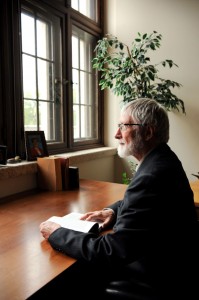 June 29, 2012 – The CMU Community Extends Heartfelt Thanks and Appreciation to Canadian Mennonite University’s First President, Dr. Gerald Gerbrandt, Retired June 30, 2012…After a long and deeply rewarding career at Canadian Mennonite University (CMU), and having served also as the president of one of CMU’s founding colleges, Canadian Mennonite Bible College, CMU President Dr. Gerald Gerbrandt on June 30, 2012 retired, leaving his office at 500 Shaftesbury Boulevard, Winnipeg, Manitoba for the last time in his role as President.
June 29, 2012 – The CMU Community Extends Heartfelt Thanks and Appreciation to Canadian Mennonite University’s First President, Dr. Gerald Gerbrandt, Retired June 30, 2012…After a long and deeply rewarding career at Canadian Mennonite University (CMU), and having served also as the president of one of CMU’s founding colleges, Canadian Mennonite Bible College, CMU President Dr. Gerald Gerbrandt on June 30, 2012 retired, leaving his office at 500 Shaftesbury Boulevard, Winnipeg, Manitoba for the last time in his role as President.
At a retirement celebration held June 23 at CMU, family members, board members, faculty and staff, members of CMU’s constituencies, university associates, colleagues, and friends gathered to celebrate the leadership gifts that Gerbrandt brought not only to CMU but to higher education in Manitoba during his time at CMU.
“As president of Canadian Mennonite Bible College when CMU began in 2000, I was one of three presidents who led CMU in the early years,” says Gerbrandt. The search for a single president took place in 2002 to 2003 while Gerbrandt was completing a one year Visiting Scholar appointment at Acadia Divinity College (Wolfville, Nova Scotia). “After lengthy conversation, prayer, and reflection, I was selected as that person.”
In September, 2003, Gerbrandt was installed as President of Canadian Mennonite University, a position he held until the present.
Gerbrandt’s career commitment and visionary leadership have contributed significantly to CMU. Of particular note was his work in securing a degree-granting char¬ter for the university from the Manitoba Government in 1998. CMU’s acceptance into the Association of Universities and Colleges in Canada (AUCC) in 2008 is also among highlights of his term. New program development, construction of a science laboratory, the new Redekop School of Business, and announcement of a future new Library and Learning Commons are recent CMU achievements.
Speaking to CMU’s vision and identity as “a university of the church for the world,” Gerbrandt comments: “Those words –university, church, world – capture, for me, the essence of what CMU is and should be: a careful thinking place, a place of the church, with its eyes always beyond itself and the church to the mission of the church in the world. We are a place where faculty and students together are encouraged, freed, and helped to think as carefully and systematically as possible about any aspect of our world, never simply satisfied with the answers of the past. That is what a university is.”
“But we are a university of the church,” he continues. “We thus do this careful, systematic thinking always mindful of our conviction that God made us and the world in which God placed us, and that God loves us despite our tendency to rebel, and sent Christ into the world for us. The questions we ask are the same as at any other university, but our identity as a Christian university means we also have to ask how our being followers of Jesus Christ impacts the way we respond to these questions.”
“And our passion in all of this,” says Gerbrandt, “must go beyond ourselves to the world in which God placed us, and which God loves. We have a mission as Christians to be salt and light in the world… We always have to remind ourselves that we have a commission to make a difference in the world as representatives of Christ, as agents of peace and reconciliation.”
Gerald earned a Bachelor of Christian Education in 1967 from Canadian Mennonite Bible College and a Bachelor of Arts from Bethel College in North Newton, Kansas in 1968, followed by studies at Earlham School of Religion in Richmond, Indiana, in 1968 to ’69. He earned a Master of Divinity degree from Mennonite Biblical Seminary in Elkhart, Indiana in 1973 and completed his Ph.D. in Old Testament at Richmond, Virginia’s Union Theological Seminary in 1980, with a dissertation on “Kingship According to the Deuteronomistic History.”
From 1969 to 1973, following a number of summers directing camping programs at Camp Assiniboia in Manitoba and Camp Squeah in British Columbia, Gerbrandt served as an Instructor & Admissions Counsellor at Canadian Mennonite Bible College. In the years to follow, he was appointed Assistant Professor, Associate Professor, Professor of Bible, and then Academic Dean of CMBC, a position which he held from 1982 to 1997.
During these years, Gerald was called upon to teach in a range of other contexts including Sessional Appointments at The University of Winnipeg’s Faculty of Theology and at Canadian Nazarene College. He was a Fellow of both Tyndale House (Cambridge, England, 1986) and the Institute of Ecumenical and Cultural Research at St. John’s University (Collegeville, Minnesota 1987 and again in 1994-1995), after which he served for a one year as Interim President at Associated Mennonite Biblical Seminary. From 1997-2003, Gerald served as President of Canadian Mennonite Bible College.
Gerald Gerbrandt, born in Chihuahua, Mexico in 1946 to Henry and Susan Gerbrandt, grew up in Altona, Manitoba where he graduated from high school and where he was baptized in the Altona Bergthaler Church. He and Esther Neudorf married in 1971 and together raised three children, Nathan (Ang), Brad (Natalie) and Virginia. They have one granddaughter, Ruby, and remain active members of Bethel Mennonite Church, Winnipeg.
At Gerbrandt’s June 23 retirement event, and also at a Celebration Dinner held in April, CMU Board members, faculty and staff, family, and friends joined in paying tribute. The June 23 event program featured a summary that, while brief, reflects and describes the President’s impact on CMU and those with whom he shared his vision:
His imagination for program growth has shaped the University’s direction and ethos. His con¬viction that CMU exist as a ‘university of the church for the world’ has been foundational. His call that CMU commit itself to educating for peace-justice and learning through think¬ing and doing, and that it work to embody generous hospitality, radical dialogue and in¬vitational community, has been formative. Finally, Gerald’s personable, trust-building, in¬tuitive, and compassionate presence has assured the well being of the university’s internal and external communities. He will be dearly missed.
Envisioning CMU’s future, Gerbrandt comments: “My hopes for CMU rest in the wonderful people who work here, and even more, in the belief that an institution that brings faith and meaning questions to bear on the careful systematic thinking about our world meets a tremendous need. And my hope rests in the conviction that God is at work at CMU.”
In the coming year, Gerbrandt has plans to finish a commentary on the book of Deuteronomy. “My wife Esther and I want to do some travelling,” he adds. “And perhaps, in a year, I will return and do some part-time teaching.”
Canadian Mennonite University extends its heartfelt appreciation and God’s blessings to its retiring President Gerald Gerbrandt and to his wife Esther Gerbrandt and family.
A Christian university in the Anabaptist tradition, Canadian Mennonite University, offers undergraduate degrees in arts, business, humanities, music, sciences, and social sciences, as well as two graduate degree programs. CMU has over 1,700 students at its Shaftesbury Campus, at Menno Simons College in downtown Winnipeg, and enrolled through its Outtatown discipleship program. CMU is a member of the Association of Universities and Colleges of Canada.
TRIBUTES TO RETIRING PRESIDENT GERALD GERBRANDT
(EXERPTS FROM THE CMU BLAZER, SPRING 2012)
I have always appreciated Gerald’s desire to develop leaders for the church. This focus was already present at CMBC, where I encountered him both as the instructor of my first year Psalms class and as a faculty friend on the choir tour bus. I became more aware of it when we worked closely together while I was Assistant Moderator to the Mennonite Church Canada General Board, be¬fore and during the formation of CMU. Gerald wanted to develop an education program that would enable students to contribute more fully to the church and the world.
This desire was furthered when a recommendation passed by Mennonite Church Canada delegates required all students at the new Mennonite university to complete the equivalent of one year of their degree in Bible-related courses. Gerald has continued to model that leadership as he has participated in national and pro¬vincial church assemblies, connecting with the broader church, and reconnecting with alumni. I will miss his extremely organized reports and the meals and laughter we have shared.
Joy Kroeger | Former Assistant Moderator, Mennonite Church Canada (2001-04)
I first met Gerald more than a decade ago through the annual gathering of Higher Education leaders of the Mennonite Brethren institutions in Canada. I enjoyed his energy – he seemed like a coiled spring, ready to pop at any time. Subsequently, our connection was maintained while my three children attended CMU.
Recently, I had the privilege of working closely with Gerald in my role as Director of ICOMB – the International Community of Mennonite Brethren. CMU hosted the global Higher Education Consultation in 2011. Gerald was on the Steering Committee. I very much appreciated his creative involvement and his appreciation for the global community of leaders in our educational institu¬tions. He and I also presented a paper in two halves: what we – as church and school leaders – hoped to see from each other in the school-church relationship. It went over very well and marked an occasion of working together both theoretical and practical. God’s blessing in your retirement, Gerald.
David Wiebe | Executive Director, International Community of Mennonite Brethren
As a relative newcomer to CMU, and a Lutheran, I rather ex¬pected that I would always feel a bit of an outsider. This has not, however, turned out to be the case. I belong, and a good part of that feeling is the result of Gerald Gerbrandt’s personality.
He was, as far as I’m concerned, an ideal president. His mind is astute and his grasp of the myriad issues involved in running a university is nothing short of amazing. But, unusual in a leader of his stature, he is a patient listener and his diplomatic skills are outstanding. Any organization of this complexity, even one that strives to exemplify peace and reconciliation, will experience conflict. Gerald has created a space where diverse opinions are not only heard, but valued. And what is particularly heartening is that under Gerald’s leadership I just knew that CMU was bound to succeed. There is something about him that assures us that the well-being of our lovely little Christian university is secure. No, not merely secure. CMU is flourishing. Thank you, Gerald.
Sue Sorensen | CMU Associate Professor of English
As you complete your mandate, Gerald, you can be justifiably proud of CMU’s accomplishments and of yours as President. I was honoured to serve as Chair of the Visiting Committee that recom¬mended CMU for membership in AUCC. Our Committee was impressed by CMU’s students, staff, and community, and by your capable and caring stewardship as President.
I was recently in southern China where I met Canadian Consul-General Weldon Epp (CMBC, BTh. 1991), who is an exemplary representative of Canada and of CMBC/CMU. I told Weldon that I knew his alma mater well, and that I understood why he was so well educated. As you retire Gerald, you can do so knowing that thousands of CMU graduates will continue reminding the world of your good work.
Best wishes in the next rewarding phase of your life. Congratu¬lations on everything that you and CMU have achieved.
H. Wade MacLauchlan, CM | President Emeritus, University of Prince Edward Island
Gerald was the right person at the right time to start CMU. He was very aware of CMU’s dual heritage, and he was very good at making sure that all were equal partners. Gerald’s key gifts are to listen, and to work as a team. He has the ability to think things through quickly, and he’s very articulate.
Under his leadership, I have seen major change happen. There’s a spiritual vibrancy here; chapels are full and Bible studies and fellowship groups abound. CMU has flourished under his leader¬ship. And I have been very impressed at how the finances were managed. There have been no financial crises – that was part of his leadership. We did not spend above our means. We were very careful at how quickly we grew.
Thank you, Gerald, for your leadership. I am very excited about where CMU is now, and where we are headed.
Ron Boese | Former Director, CMU Maintenance Department
Families can be complicated. So it is and was with the Mennonite Brethren and General Conference Mennonite Church families and, in particular, two of their colleges, MBBC/Concord and CMBC. Relations were congenial and warm, but there were inexplicable differences that kept their relationships at arm’s length.
The process in which three Winnipeg-based Mennonite colleges started to talk to each other about another paradigm was neither new nor unwelcome. Neither was it a foregone conclusion.
Gerald Gerbrandt’s role in turning the dream into reality was absolutely critical. Gerald is a person of complete integrity. He brought a perspective which was refreshingly straightforward and non-political. His comments and his writing were always careful and clear, and he sought as hard to understand as to be understood. His commitment to a fair, above-board process that honoured the contribution of all was irrevocable. Gerald exem¬plified diplomatic trustworthiness which made us proud to be associated with him.
There are few people whom I respect more than Gerald, and I am quite convinced that his early leadership in the coming to¬gether process, followed by years of committed presidency, were, and have been, indispensable to what CMU has and will become.
Al Doerksen | Former Concord Board Chair (1992-’99)
Gerald’s ability to listen carefully to other perspectives and ideas and then articulate how to incorporate them into a plan of action and vision of the future was crucial to the development of CMU during the early years of planning. I experienced many times his willingness to incorporate other peoples’ understandings into how we could move forward without being defensive about any position he had taken in the past. At the same time, Gerald’s strong commitment to the core of what he believed the new institution needed to be helped to keep us moving in a positive direction despite many different understandings about the best way to get there. His strong connection to Mennonite Church Canada and intentional connections to the Mennonite Brethren constituency were crucial to communicating the new vision for Mennonite post-secondary education. CMU has been blessed greatly by Gerald’s tireless work and leadership and just as impor¬tantly by the people that he has invited and encouraged to be an important part in its development and growth.
Bruce Baergen | Former CMBC Board Chair (1997-’01)
As the only member of the CMU senior administrative team situ¬ated off the Shaftesbury Campus, working from CMU’s Menno Simons College campus, I worked with Gerald in a rather unique way. We did not see each other every day, and some weeks we did not even talk to each other, and yet, I always knew that he was just a phone call away. Gerald usually answered his own phone and no matter how busy he was, or what kind of pressures he was under, he always gave his attention to me in a way that made me feel as if my question or issue was of utmost importance. This acces¬sibility and open communication was especially important since Menno Simons College is not physically part of the rest of CMU. Gerald has done a wonderful job of walking the fine line between providing support and inclusivity to MSC, while at the same time allowing MSC to maintain its distinct culture and sense of place. I will miss his wise counsel and personal support.
Ruth Taronno | Associate Vice President, Menno Simons College
I was a young, impressionable, first-year CMBC student when I first met Gerald more than 30 years ago. He was my 240 “Intro to the Old Testament” professor, but he quickly became my sounding board for all things CMBC. When I was overwhelmed with theo¬logical issues, or confused about how to write a formal college-level paper, his office door was always open. He welcomed me, and everyone else, with patience, good humour, and infectious smile. Gerbie, as he was known to students, also always wanted to hear about dorm life. He was “all about relationships.” He wanted to feel the pulse of the school, both academically and socially. For us, Gerald’s office played a large role in strengthening the CMBC community.
Now, many years later, I realize how important Gerald’s gifts have been in my life. One gift was his ability to interact with a wide variety of people, from presidents of public universities to people in the pew with no formal theological training. For Gerald, we are all on the same playing field, and in all people, he sees knowledge and wisdom, and the face of God. Gerald is an inspirational and visionary church leader. But for everyone who has been fortunate enough to know him, most importantly, he is our friend. Thank you, Gerald, for this incredible gift. I am honoured to be called friend.
Charlotte Siemens | Principal, W.A. Fraser Middle School (Abbotsford, BC)

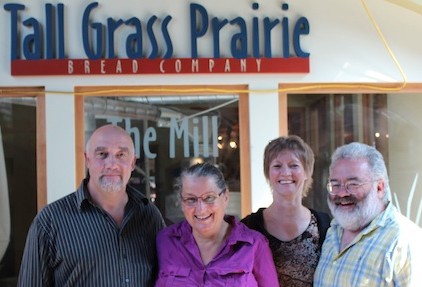
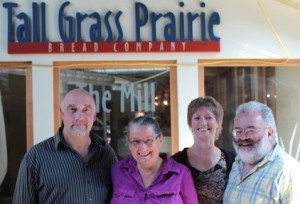
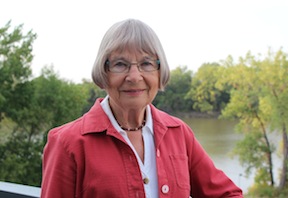
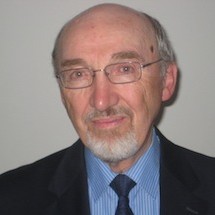
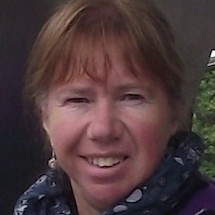

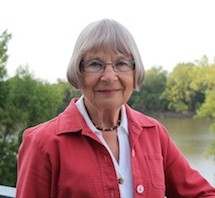


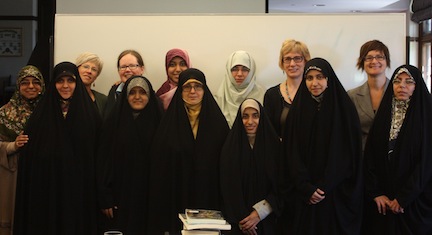
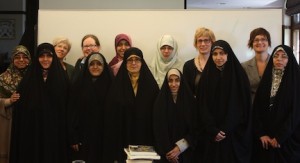
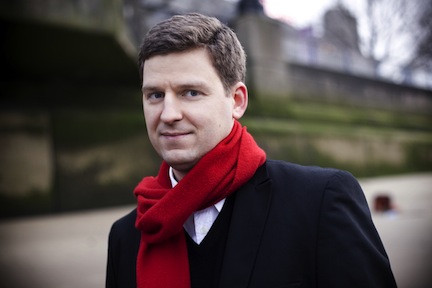

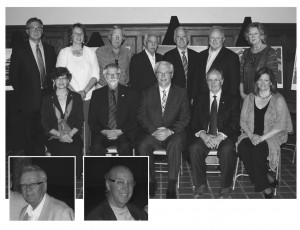 August 3, 2012 – Early gifts from CONNECT Campaign Executive and CMU “family” (Board, faculty, staff, etc.) exceed $4-million to start the fundraising campaign for CMU’s Library and Learning Commons and Pedestrian Bridge.
August 3, 2012 – Early gifts from CONNECT Campaign Executive and CMU “family” (Board, faculty, staff, etc.) exceed $4-million to start the fundraising campaign for CMU’s Library and Learning Commons and Pedestrian Bridge.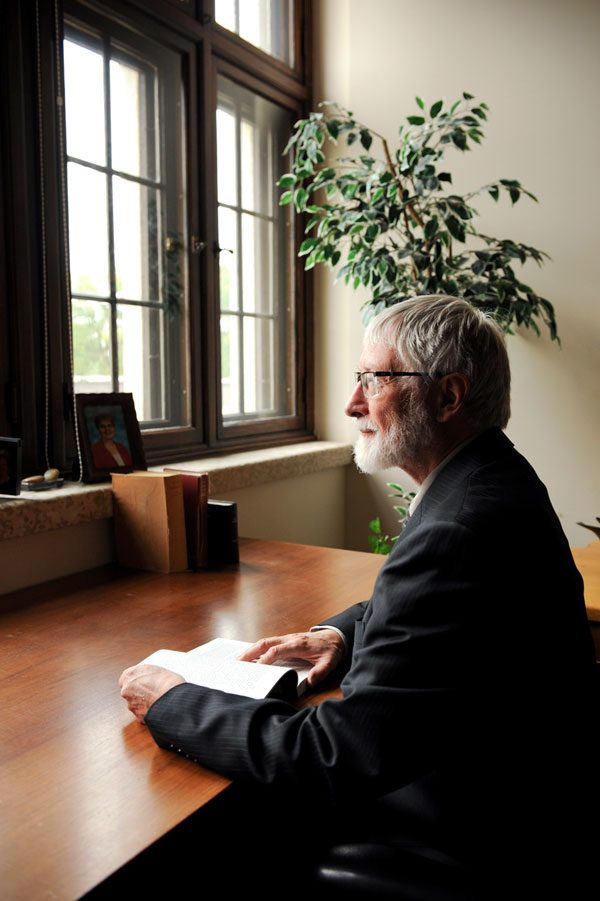
 June 29, 2012 – The CMU Community Extends Heartfelt Thanks and Appreciation to Canadian Mennonite University’s First President, Dr. Gerald Gerbrandt, Retired June 30, 2012…After a long and deeply rewarding career at Canadian Mennonite University (CMU), and having served also as the president of one of CMU’s founding colleges, Canadian Mennonite Bible College, CMU President Dr. Gerald Gerbrandt on June 30, 2012 retired, leaving his office at 500 Shaftesbury Boulevard, Winnipeg, Manitoba for the last time in his role as President.
June 29, 2012 – The CMU Community Extends Heartfelt Thanks and Appreciation to Canadian Mennonite University’s First President, Dr. Gerald Gerbrandt, Retired June 30, 2012…After a long and deeply rewarding career at Canadian Mennonite University (CMU), and having served also as the president of one of CMU’s founding colleges, Canadian Mennonite Bible College, CMU President Dr. Gerald Gerbrandt on June 30, 2012 retired, leaving his office at 500 Shaftesbury Boulevard, Winnipeg, Manitoba for the last time in his role as President. 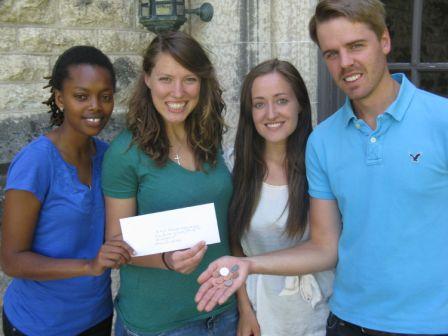
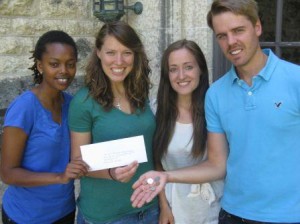 June 30, 2012 – A week ago, a small group of students from Canadian Mennonite University (CMU) and CMU’s Menno Simons College launched a campaign to challenge the federal government’s decision to begin denying supplemental healthcare coverage to refugees on June 30, 2012.
June 30, 2012 – A week ago, a small group of students from Canadian Mennonite University (CMU) and CMU’s Menno Simons College launched a campaign to challenge the federal government’s decision to begin denying supplemental healthcare coverage to refugees on June 30, 2012.
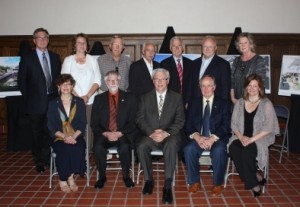 June 15, 2012 – Canadian Mennonite University (CMU) President Gerald Gerbrandt today announced plans for a major new university capital project that will significantly enhance CMU’s infrastructure for delivering quality post-secondary education. This important new campus asset will also serve as a valuable resource to the broader Manitoba community.
June 15, 2012 – Canadian Mennonite University (CMU) President Gerald Gerbrandt today announced plans for a major new university capital project that will significantly enhance CMU’s infrastructure for delivering quality post-secondary education. This important new campus asset will also serve as a valuable resource to the broader Manitoba community. 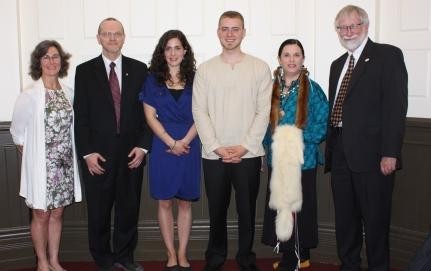
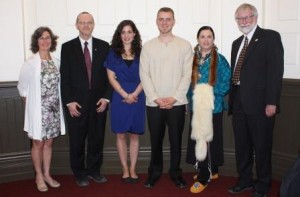 June 14, 2012 – On June 7, 66 students graduated having completed one of the two programs offered by CMU’s Menno Simons College (MSC) in International Development Studies (IDS) or Conflict Resolution Studies (CRS). At a special MSC celebratory event, Dr. Julie Pelletier, Chair of Indigenous Studies at The University of Winnipeg, delivered the keynote address in Convocation Hall following graduation ceremonies.
June 14, 2012 – On June 7, 66 students graduated having completed one of the two programs offered by CMU’s Menno Simons College (MSC) in International Development Studies (IDS) or Conflict Resolution Studies (CRS). At a special MSC celebratory event, Dr. Julie Pelletier, Chair of Indigenous Studies at The University of Winnipeg, delivered the keynote address in Convocation Hall following graduation ceremonies.